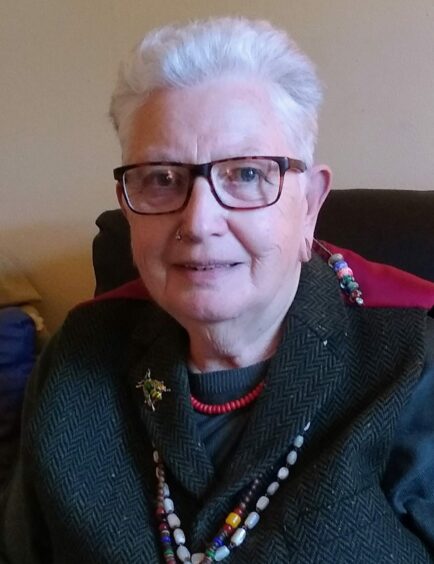Aberdeen University scientists have discovered brain changes linked to emotion as part of a study of a special type of syndrome.
Studies in Takotsubo syndrome, sometimes known as broken heart syndrome, show changes in areas of the brain associated with emotion – according to the research presented at the British Cardiovascular Society centenary conference in Manchester.
Mainly found in menopausal women, the syndrome is a sudden form of acute heart failure which is estimated to affect as many as 5,000 people in the UK every year.
Although the arteries leading to the heard are not blocked, the risk of complications and symptoms are similar to those of a heart attack.
Changes brought on by emotional or physical stress
It is not fully understood what causes Takotsubo syndrome, but is usually brought on by emotional or physical stress such as the loss of a loved one.
Aberdeen University scientists have also identified changes in the level of brain activity in areas known to control the beating of the heart.
Dr Hilal Khan, Clinical Research Fellow at the University of Aberdeen said: “For years we’ve known that there is a link between the brain and the heart, but the role this plays in Takotsubo has been a mystery.
“For the first time we’ve revealed changes in the brain regions that are responsible for controlling the heart and emotions. Further work will be required to determine if these changes cause Takotsubo syndrome.
“We hope that with more research we can determine which treatments are the most effective. We already hope to explore the impact cardiac rehabilitation and psychotherapy have on the structure and function of the brain after Takotsubo to ultimately improve care of these patients.”
In the most advanced research of its kind, scientists observed the brains of 25 patients who had suffered an episode of the syndrome in the past five days.
MRI scans then measured brain volume, surface area and the signals of communication between different areas of the brain.
These results were then compared to patients who were matched for age, gender and other medical conditions.
‘Misconception it is all in the head’
Carol Duncan, 73, from Aberdeen, is part of the study as she suffered an episode of Takotsubo after her brother fell ill and was admitted to ICU. She said: “Because Takotsubo can be triggered by an emotional event, there is a misconception that it is just in your head. Knowing that researchers saw measurable changes in my scans makes me feel that we are getting closer to Takotsubo being considered a physical condition.
“I am so pleased to have taken part in this research. It really gives me hope that scientists are moving towards fully understanding, and better treating this misunderstood condition.”
Follow-up brain MRI scans on the same patients to track the natural course of Takotsubo in the brain.
Professor James Leiper, Associate Medical Director at the British Heart Foundation said: “Takotsubo syndrome is a sudden and potentially catastrophic heart condition which has only been recognised in recent years. Our understanding of the condition is still in its infancy, and so it is vital that we learn more about this neglected area of cardiology.
“This research is a significant step forward in our understanding of how the brain and the heart are intricately linked in this enigmatic condition, and how an emotional event can lead to heart failure.”

